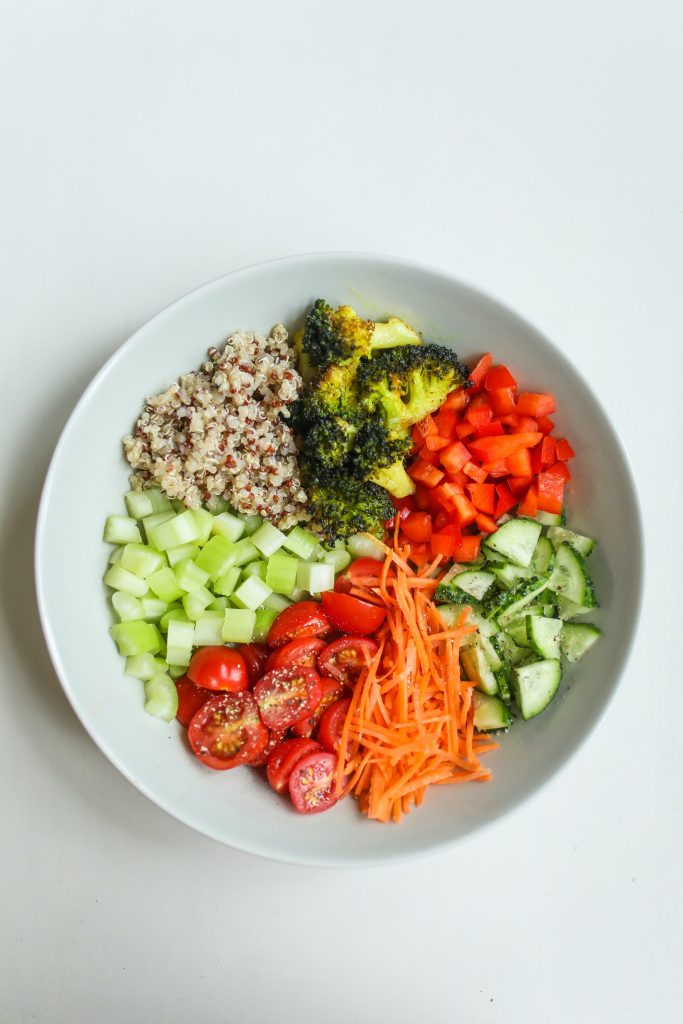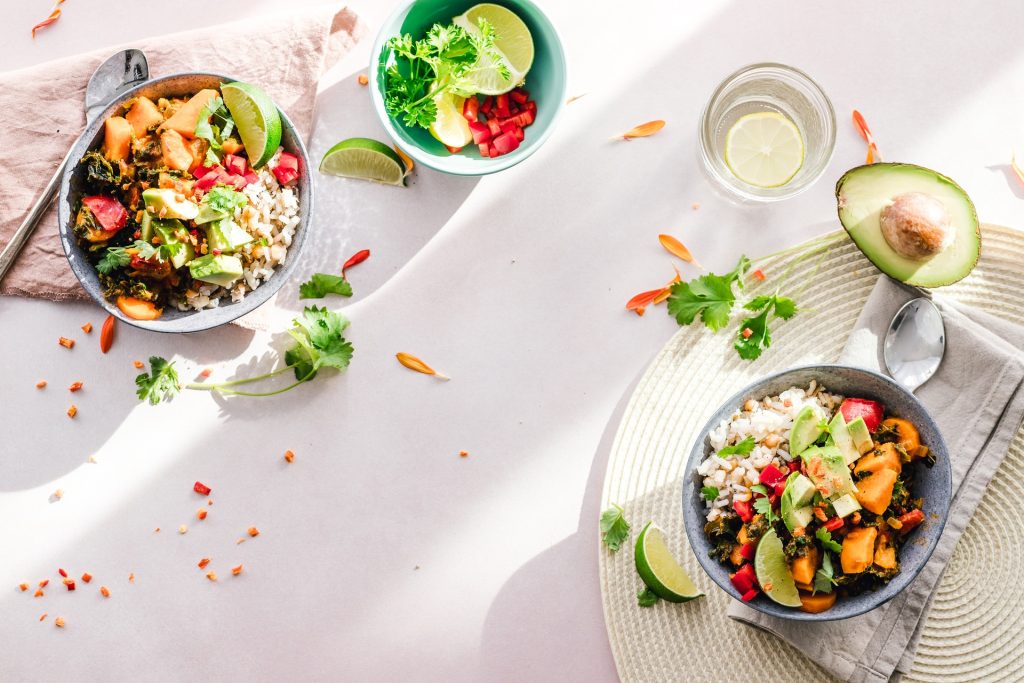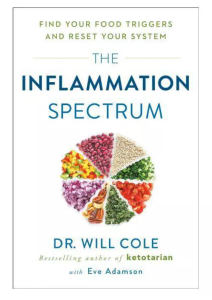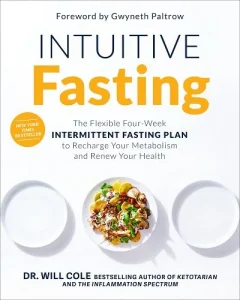I’m sure we’ve all heard about intermittent fasting (IF), as it is the most popular diet lately. But is it just another trend that will pass as suddenly as it came along? Or is there some solid data behind it? As it turns out, IF is a tale as old as time, as far as our metabolism’s basic functioning goes; furthermore, research surrounding it is nothing short of impressive.
To clarify the truths and myths surrounding intermittent fasting, we have the expert opinion of Dr. Nashat Latib, a board-certified physician that specializes in functional medicine and natural fertility. The physician melts traditional medicine with functional medicine, where the latter is based on the root cause and preventing disease. Dr. Latib says she believes in the power of food as medicine, so diet is a big part of her practice.
What Is Intermittent Fasting?
Dr. Nashat Latib says breakfast is not in fact the most important meal of the day, and just by skipping it, you can decrease your caloric intake by 20 to 40%.
According to Dr. Latib, fasting is actually a habit that comes from times when man was a hunter-gatherer, so getting food took time, and you didn’t have it on hand at all times. Nowadays, we are used to being in front of screens, and we tend to eat continuously. The physician says that is not natural, and we get a lot of benefits from fasting.
The most commonly used interval of IF is 16 to 8, meaning you fast for 16 hours, then eat in an 8-hour window. But this method is very flexible, so in the beginning, you could start by doing a 12 to 12 and then work your way up. Some people can fast for 20 hours at a time and eat in an interval of just 4.
For additional information on IF and the complete interview with Dr. Nashat Latib, please watch the video below:
How Does Intermittent Fasting Work?
When we eat, the food is broken down in the gut and transformed into energy. Carbohydrates, such as sugars, white flours, or rice, are broken down into sugar that spikes your insulin level. Our body uses this for energy, but any excess will be stored as fat cells.
In other words, our body essentially produces insulin; our body puts that glucose away in the liver and the skeletal muscle. When this exceeds a certain level, we turn glucose into fat.
On the other hand, we have a low insulin level when we are in a fasting state. During this process, the body releases sugar, so it starts consuming the fat stores. This can mean those you can see, but also the visceral fat stores. The latter refers to fat that is stored around our organs, and these are the main culprits for chronic disease (cardiovascular, diabetes, hypertension).
Intermittent fasting can reverse the process of these diseases settling in because it reduces the visceral fat, meaning that unseen enemy.
For additional information on intermittent fasting, how it works, and healthy recipes, you can check out this comprehensive books:
What the Research Says About Intermittent Fasting
Intermittent fasting has been around for a long time. Still, recent studies show that it helps maintain a healthy weight, weight loss by improving metabolism and decreasing insulin levels. IF also reduces inflammation, and it has a detoxifying effect, a great help when it comes to preventing chronic disease.
There is some promising evidence that suggests intermittent fasting improves stress resistance and longevity. Generally, these data show better results if the intervals are fewer hours of eating, with more hours of fasting (6 to 18 or 8 to 16). So the more the body stays in fasting mode, the better it gets at managing glucose and insulin levels, which triggers all those health benefits mentioned above.
You can find details on the IF research in these articles:
https://www.nejm.org/doi/full/10.1056/NEJMra1905136
https://www.health.harvard.edu/blog/intermittent-fasting-surprising-update-2018062914156
What to Eat During Intermittent Fasting
There are no stone-written rules when it comes to IF, but the best route to take is to eat as clean as possible, in between fasting. This means colorful foods, whole foods, healthy fats, and lean protein.
Dr. Latib says you should go for the perishable ingredients when walking into a grocery store because anything with a long shelf life is filled with preservatives and chemicals. She also believes in counting colors, not calories, when it comes to your fresh produce. Please stay away from white and brown foods as much as possible, and go for the red, yellow, orange, and green foods because they contain phytonutrients.

Healthy fats are also essential for your body, so be sure to include them in your diet. Go for nuts, such as cajun, macadamia, hazelnuts, or avocados.
It’s essential to include clean-sourced protein in your diet, such as wild-caught fish, grass-fed beef, and organic, if possible. However, you should do portion-control when it comes to lean protein; women generally need 4 ounces of protein on their plates, while men need a little more, meaning 6 ounces.
You can break fasting with lean protein and a complex carb, such as sweet potato, adding a source of healthy fat. But at nighttime, you will benefit more from keeping your plate more plant-based and less protein because the latter is harder to digest, causing stress to the body.
Mainly eating plant-based makes the human growth hormone go up; this helps keep lean muscle, a better mood, and better sleep, as it stimulates melatonin.
You should be very careful with highly inflammatory food, like gluten, dairy, sugar, or corn. Many people have an intolerance or a form of sensitivity to these, so try avoiding them as much as possible.
If you go out to dinner during IF, you should still do your best to eat as clean as possible. Dr. Latib advises to fill your plate with mostly vegetables and to order off-menu; this means to ask the chef to prepare something for you if you can’t find any suitable options for you on the menu.

How Many Calories Can You Eat In Between Fasting?
Dr. Nashat Latib says she does not believe in counting calories but colors. As stated above, choosing high-nutrient foods with all the rainbow colors is a great way of living a healthier lifestyle.
The physician further explains that eating less and exercising more is no longer the norm for an excellent diet. It’s more about the quality of the food than the quantity, and those hours of fasting, when your body consumes fats.
Of course, this doesn’t mean you can eat fast food in enormous amounts in between fasting and still lose weight and get all those health benefits. Stick to a clean diet with lean protein, plant-based, high fiber, and organic foods where possible; combined with fasting, and you should see great results.
As an example, here is a video of what I eat in a day, while on intermittent fasting:
Do You Have to Follow a Specific Diet During Intermittent Fasting (Keto, Low Carb, Vegan Diet)?
The keto diet is a very popular way of losing weight, and it’s based on finding an alternative source of energy for the body. It consists of increasing your fat intake and reducing carbs dramatically. This forces the body to go from a glucose state to a ketosis state, meaning it will use fats for energy instead of sugars, reducing insulin levels.
But should we combine fasting intervals with a keto diet when in the eating stage? Some data suggest both methods have the same principles, so combining the two may help you reach your goals faster and better.
When we are fasting, the body switches where it finds its energy – because it no longer receives glucose from food intake, it goes to fat deposits and consumes that. This translates into going from glucose to ketosis, so the process is exactly like a keto diet. Pairing the two diets may lead to faster results, giving your metabolism a boost and to more weight loss.
IF is safe for vegans, too, and you just need to be careful to get enough protein and high-fiber foods when breaking fasting. A plant-based diet is a very good idea for getting a large amount of phytonutrients but always balancing with a varied diet.
A low-carb diet also makes a lot of sense in combination with IF because they have similar goals. They both seek to get your body out of glucose-state and into ketosis-state, so getting your energy from fat deposits rather than sugar intake. A low-carb diet also helps lower your blood sugar levels and prevent insulin-associated disease.

Is Intermittent Fasting Different for Various Body Types?
There are three main body types: ectomorph, mesomorph, and endomorph. Each of these designates a certain frame and tendency to hold onto weight in certain areas.
Ectomorphs are characterized by a small frame, are thin, and have trouble gaining weight. A mesomorph has a more muscular body, a medium-size frame, and an hourglass shape with an athletic figure. On the other hand, endomorphs gain weight easily and have more body fat than other types.
There is no solid evidence that keeping a certain type of IF can benefit one body type more than the other. However, it may be a good idea for those with an ectomorph body type to try longer fasting intervals to have a better chance at increasing their metabolism.
Intermittent Fasting and Menopause: Tips for Women Over 50
When you are over 50, you start to lose muscle mass, and it’s so much harder to put on more. Instead, your body tends to store fat deposits, so you often start gaining weight, even though the diet and calories intake is the same as before.
IF can help increase your metabolism and promote weight loss by targeting those fat deposits. What’s more, the fact that intermittent fasting has been proven to decrease inflammation can have a major impact on your overall health.
Women going through menopause have an increased risk of joint and skeletal disorders; plus, when we are over 50, we start being more in the risk categories of cardiovascular disease, cancer, and other life-threatening illnesses. A more balanced diet, less body fat, and a decrease in inflammation will give you a greater chance of preventing disease and staying healthy.
For planning your meals more efficiently in between fasting, try using this calendar:
Intermittent Fasting Rules and Mistakes to Avoid
Intermittent fasting can have wonderful health benefits, but you should combine it with better choices. Keep reading to get some tips and tricks to what you may be forgetting.
Caffeine or Sugar Rush
Try reducing caffeine and alcohol because they are sending your body into overdrive. Caffeine stimulates our body much like sugar does, increasing our insulin level. When this level drops suddenly, and we have low energy, we think we are hungry, so we start eating obsessively. Cutting back on sugar and caffeine is an excellent idea to control our cravings.
You can drink alcohol once in a while, but be careful with your choices. Red wine has real benefits, as shown by the Mediterranean diet, where people live longer. But not all wines are created equal; go for the organic ones that go through a slow fermentation process. This will give them the best nutrients.

Too Much Stress on the Body
Find a way to reduce stress, whether we are talking about meditation techniques or just finding activities that give you a sense of relaxation. But we may also be causing ourselves dietary stress, an unknown but very important aspect.
Dietary stress can be caused by irregular meals or eating too much processed food, sugar, gluten, or other inflammatory foods. Otherwise, we will experience all sorts of inflammation within our bodies that may hit different parts.
For example, many people complain about leaky gut, meaning the lining of the intestines is damaged. This will cause bacteria or other harmful substances to penetrate more into our system.
Too Much High Impact Exercise
Everybody knows exercise and incorporating a lot of movement in your routine is very beneficial for our health and generally highly recommended. But too much exercise, especially if they are high-impact, can actually cause more oxidative stress and inflammation.
A much better idea is to go for low-impact exercises that are restorative. Some examples would be pilates or yoga that focuses on breathing, giving an overall sense of calm.

You can check out my video for Flow Yoga with instructor Henry Richardson, to get inspired in your workout routine.
You Don’t Drink Enough Water
Hydration is key when it comes to general health, but when do you know you are drinking the right amount of water for you? Dr. Latib advises to consider your weight in pounds, divide it by two, and the result is the amount of water, in ounces, that you need in a day.
Some people excerpt from this rule, such as those with congestive heart failure or kidney disease. It’s always best to seek advice from your medical professional about the amount of water you need, especially if you have health issues.

What Breaks Fasting (Snacks, Drinks, Medication)
Intermittent fasting implies not eating any food for a number of hours (16 or 18, for example). But within these hours, you still have to stay hydrated and comfortable, so some liquids are allowed and necessary.
But some snacks or drinks can break fasting, so keep reading to get all the know-how in doing IF right. The goal here is to add hydration without adding calories.
Water is the safest thing you can consume during fasting, but make sure not to add any sugar or honey to eat (so plain water, not lemonade). Coffee or tea is also fine, but it’s better not to add any milk, sugar, or cream to them. Remember to keep your caffeine intake to a minimum because that temporary energy boost will trigger hunger later on.
Some people will drink clear bone broth during fasting; this will give you a lot of nutrients and collagen from the bones, but it will break your fast since you are adding calories.
Another concern is whether taking supplements can breakfast. Though this seems a little unlikely, some supplements have small amounts of sugar, artificial sweeteners, or protein. So they technically break your fast.
Supplements like protein powder or amino acids will break your fast, but others, such as multivitamins or probiotics, are safe to take during IF.
For inspiration, please check out my article about the best supplements for women over 40.
How to Deal With Hunger During Intermittent Fasting
Even though you probably understood by now how many benefits there are in keeping intermittent fasting, there is still a small element that can set you back. And that is the hunger you naturally feel when fasting, especially when you’re just starting out.
Hunger is triggered by hormones, smells, or visuals, but also by feeling stress or boredom. Adding to this, in IF, there is that sense that you can’t do something, and that is when you become obsessed with doing it. But there are ways you can deal with that hunger, so you can get through your fasting intervals a lot easier.
Drinking a lot of liquids is essential during fasting because you need to stay well hydrated, and it gives you a sense of fullness. Try and drink a few glasses of water or simple tea (no sweeteners) first thing in the morning, and you will already feel better about hunger.
It would help replace electrolytes that are usually lost during fasting, with bone broth or magnesium or potassium supplements. Also, limit your alcohol intake before fasting because it usually contains lots of sugar that spikes your insulin level; alcohol also dehydrates you, which can negatively impact you during fasting.
Your mood also has a lot with hunger, because we often eat because we are stressed, nervous, or just bored. So try to get enough sleep, do some relation rituals, like meditation, find pleasant ways to distract yourself, and keep busy. This will help take your mind off hunger, and fasting will seem a lot easier.
Long Terms Benefits and Side Effects
In the beginning, it takes a while for the body to adjust to intermittent fasting. You may experience symptoms such as headaches, constipation, and a general state of fatigue. Keep in mind these sensations are only temporary, and you should feel a lot better within a week. The true changes and benefits will show up regularly within 30 days of doing IF.
Intermittent fasting has great benefits for your whole body and overall health. As stated above, it decreases your obvious body fat and your visceral fat that lies between the organs and causes trouble.
When doing IF regularly, inflammation decreases, which means preventing a number of life-threatening diseases. Some examples are diabetes, hypertension, cardiovascular disease, or high cholesterol. The amazing thing is fasting can also impact reducing the risk of cancer or Alzheimer’s disease.
Another essential benefit of IF is the fact it improves our mood. Most serotonin (the happiness hormone) is produced in our gut, so when you decrease inflammation by avoiding highly inflammatory foods, the gut’s lining starts to heal. Dr. Nashat Latib says many of her patients reported feeling a greater sense of joy, as well as mental clarity, after keeping IF for a period of time.
However, there are categories of people that are best to stay clear from IF. Dr. Nashat Latib explains that some should avoid intermittent fasting altogether, while others could do it only under close medical supervision.
People with diabetes should avoid this type of nutrition without professional guidance because not eating for those long hours may drastically modify their insulin levels. The same goes for pregnant women or breastfeeding and people with serious heart or kidney disease. However, those very young or old should avoid IF altogether, meaning those under 17 or over 70.
Integrate Intermittent Fasting Into a Healthy Lifestyle
IF has many proven health benefits, and it can help you prevent chronic illness and live a longer life. This method of losing weight and getting a healthier lifestyle is ever more popular nowadays. The good news is that it’s not just a hyped new diet, but there is so much promising research and data around it.
When it comes to IF, the key is, as always, in moderation. Start slowly and build your way up so you limit side effects and feel uncomfortable from too much hunger. There is no need for extreme calorie restriction in the intervals when you eat, but a cleaner, more wholesome diet will bring you the best results for weight loss and general health.
You can work with Dr. Nashat Latib here:
- Mention code “DOMINIQUE” if you sign up for a group program and get 10% OFF (fertility and detox)
- Work with Dr. Nashat 1:1 and book a discovery call with her team – https://drnashatlatib.com/work-with-me-11/
- Dr. Nashat’s free Fertility Masterclass where you have an opportunity to book a call with Dr. Nashat or her physician partner – https://www.4RFertilityFormula.com/register













